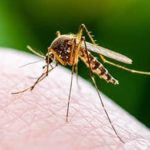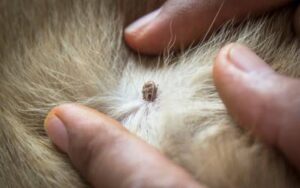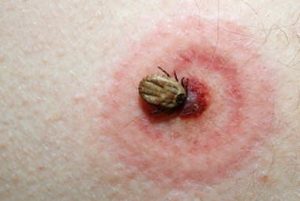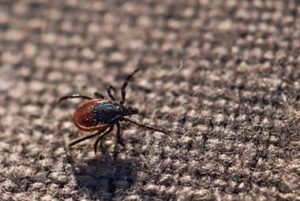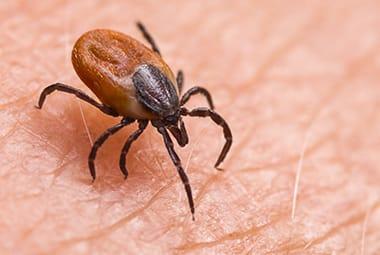
You probably know by now that tick-borne illnesses are on the rise. According to the CDC, Lyme disease alone has doubled over the past twenty years. This can present a serious health threat to your dog, your cat, your children, and anyone else living in your home. Here is a quick guide to help you understand this threat.
Tick-Borne Diseases that Affect Dogs
Dogs are most affected by the diseases that ticks can carry. There are many reasons for this but one of the most noteworthy is that dogs aren’t as hypersensitive to changes in their environments, like cats are. When a tick gets on a cat, it is usually removed quickly, and quick removal can prevent the spread of illness.
Some of the many diseases that ticks can transmit to dogs are Lyme disease, canine ehrlichiosis, Rocky Mountain spotted fever, canine babesiosis, canine bartonellosis, canine anaplasmosis, and canine hepatozoonosis. All of these come with their own set of symptoms. If you have a dog, take the time to research each of these so you can recognize the warning signs.
Tick-Borne Diseases that Affect Cats
Cats are less likely to contract tick-borne diseases, but they’re not immune. And while they can still get sick from tick diseases, their resistance to illness could increase your exposure to serious illnesses such as cat scratch fever, an illness that can cause blindness if your cat licks you near your eyes.
The key diseases spread to cats are haemobartonellosis, tularemia, cytauxzoonosis, ehrlichiosis, and babesiosis. Spend some time researching these and discuss with your veterinarian some strategies for protecting your cats, and yourself, from ticks.
Tick-Borne Diseases that Affect People
Humans can also be impacted by tick-borne disease. While Lyme Disease gets all the press, there are many diseases that are spread from tick to human. Here’s the short list: Rocky Mountain spotted fever, tularemia, Powassan virus, ehrlichiosis, babesiosis, Colorado tick fever, and Southern tick-associated rash illness.
Tick Prevention
- Personal protection: Apply mosquito repellent on your legs. Avoid tall grass. Wear bright-colored clothing so you can see ticks crawling up. Check for ticks after being outside.
- Pet protection: Make sure your pets have collars and other tick-prevention products.
- Reduce moisture around your home: Ticks need moisture to live. The drier you can make your landscaping, the fewer ticks you’ll have.
- Control wildlife: Animals bring ticks into your yard and into your home. Everything you do to prevent wildlife activity will have an impact on tick populations.
- Treatments: Professional treatments from a licensed pest control provider can destroy ticks and mosquitoes in your yard.
For assistance with tick & mosquito control in the Knoxville area, call on Russell’s Pest Control. Our licensed and experienced service professionals are here to help.
Guide To Tick-Related Illness For Knoxville Residents in Knoxville TN
Serving East Tennessee since 1971
